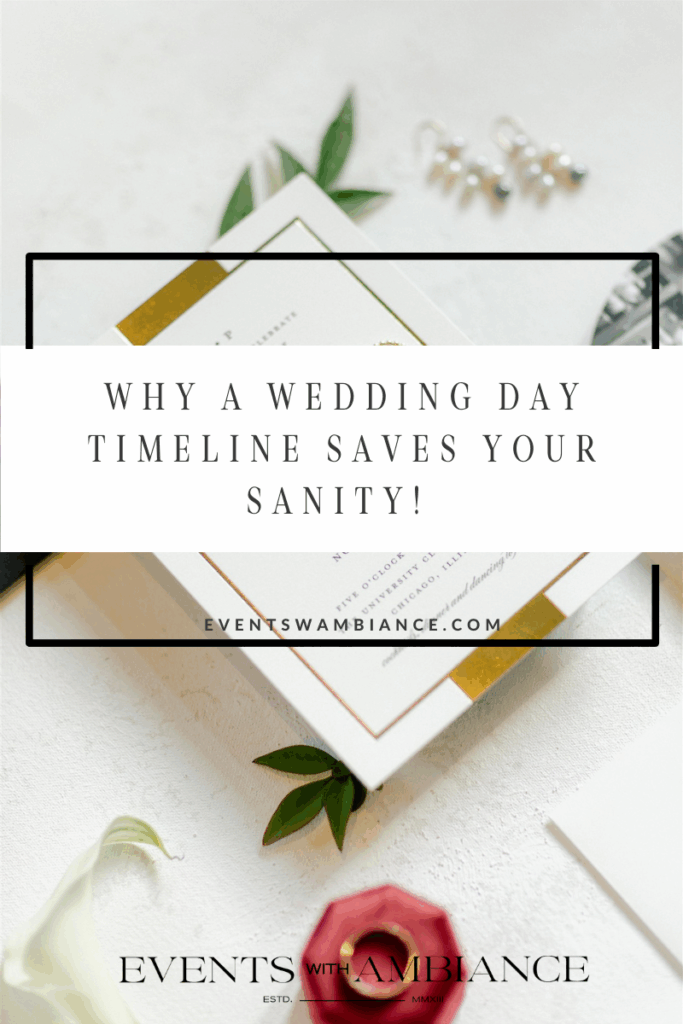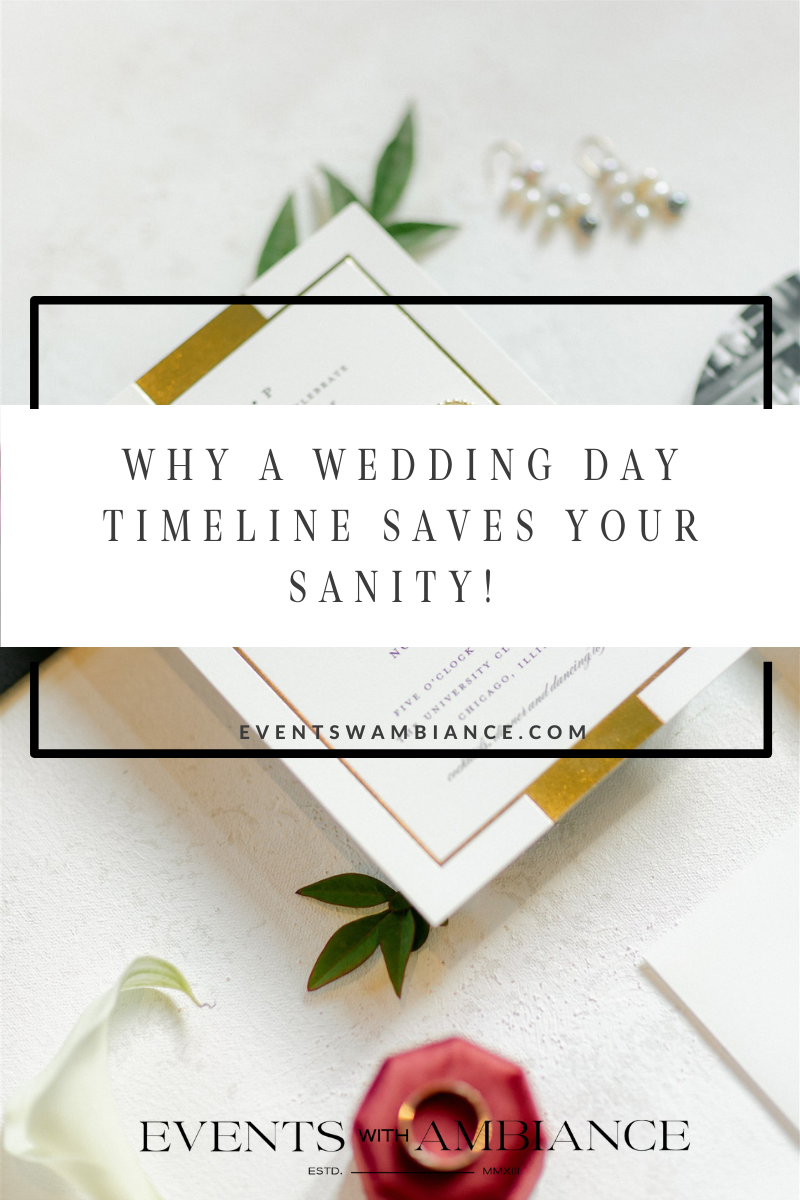October 20, 2025
Why Timelines Matter More Than You Think
Most couples underestimate the power of a timeline. They see it as a to-do list of arrival times and ceremony cues, but the truth is: a wedding day timeline is the backbone of your entire event.
Without one, vendors guess, bridal parties wander, and your carefully curated vision can easily unravel. With one, your day flows seamlessly — everyone knows where they should be, and you’re free to enjoy the moment.
As a Chicago wedding coordinator, I’ve created hundreds of timelines, and I can tell you this: the difference between a stressful wedding and a smooth one comes down to one thing — a well-thought-out wedding day timeline.

Reason 1: A Timeline Keeps Vendors Aligned
Think of your vendors as a symphony orchestra. Each one plays a different role: the florist sets the stage, the photographer captures the moment, the caterer cues dinner, the DJ creates the rhythm. But without a conductor, the music turns to chaos.
Your timeline is that conductor. It tells vendors when to arrive, where to set up, and how their work fits into the flow of the day.
💡 Pro Tip: Share your final timeline at least 2 months before the wedding. This gives vendors enough time to confirm details and adjust as needed.
Reason 2: A Timeline Protects Your Guest Experience
Guests may not notice your exact napkin fold, but they absolutely notice if they’re waiting an hour between ceremony and dinner. A timeline ensures that transitions — from ceremony to cocktail hour, from dinner to dancing — are smooth and enjoyable.
Couples who skip a detailed timeline often find themselves with awkward gaps, rushed meals, or delayed dances. And those hiccups? They’re what guests remember.
💡 Pro Tip: Build buffer time into your timeline. Things like family photos or makeup touch-ups often take longer than expected.
Reason 3: A Timeline Keeps You Present
The last thing you want on your wedding day is to be checking your watch, wondering if the cake arrived or when it’s time for toasts. A timeline shifts that mental load onto your coordinator, so you can stay focused on being present.
I’ve seen brides tear up over their first look, parents laugh during dinner, and couples take a deep breath before the dance floor opens — all because they weren’t worried about the clock.
💡 Pro Tip: Hand your timeline to someone you trust (ideally your coordinator). You shouldn’t be the one managing it on the day.
Reason 4: A Timeline Prevents Costly Mistakes
Weddings are expensive. When the schedule runs late, costs rise: venues charge overtime fees, shuttles wait on the clock, vendors may need to extend hours. A clear timeline ensures the day stays on track — saving you money in the process.
💡 Pro Tip: Ask vendors about overtime policies when finalizing contracts. This will help you build realistic timelines and avoid surprises.
Conclusion: Your Secret Weapon for a Seamless Wedding
A wedding day timeline isn’t just a document — it’s your secret weapon for a calm, joyful, stress-free celebration. It keeps vendors aligned, protects your guest experience, and frees you to actually enjoy the moments you’ve been dreaming about.
This is why I created my Timeline + Touchpoints Package. It gives couples the exact framework I use to design flawless wedding day timelines — plus key vendor communication touchpoints to keep everyone aligned.
✨ Ready to build your stress-free wedding day? Grab my free Wedding Week Checklist to get started — and if you want a done-for-you, customized timeline, explore my Timeline + Touchpoints Package today.
